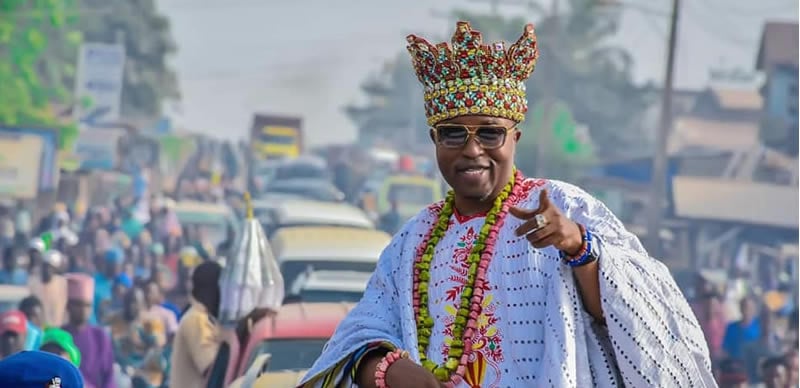The historical narrative of the Yoruba people, a prominent ethnic group in West Africa, has been a subject of ongoing debate and, at times, contention. This discourse recently resurfaced with renewed intensity following pronouncements by the Oluwo of Iwo, Oba Abdulrosheed Akanbi, challenging the widely accepted belief that Ile-Ife is the cradle of the Yoruba race. This assertion ignited a heated exchange, particularly with the palace of the Ooni of Ife, the traditional ruler of Ile-Ife, who holds a position of significant reverence among many Yoruba people. The Oluwo’s pronouncements, often delivered with a sense of conviction, questioned not only the historical significance of Ile-Ife but also the very linguistic and cultural practices of its people, further fueling the controversy.
The crux of the Oluwo’s argument rests upon linguistic variations and differing religious nomenclature. He posits that the language spoken in Ile-Ife deviates significantly from what he considers mainstream Yoruba, citing the use of the term “Eledumare” for God, as opposed to “Olodumare” which he claims is the authentic Yoruba term. He extends this linguistic analysis to other expressions, including the use of “Olofin” in Ile-Ife, which he contrasts with “Alaafin,” a title associated with the Oyo kingdom. These linguistic discrepancies, according to the Oluwo, serve as evidence that Ile-Ife does not represent the true origin of Yoruba culture. He further asserts that Iwo, his own domain, holds the key to a more accurate, albeit undocumented, history of the Yoruba people. This claim positions him as the “Arole Olodumare,” a custodian of this purportedly true history.
The response from the Ooni of Ife’s palace was one of stark dismissal. Rather than engaging directly with the Oluwo’s assertions, the Ooni’s spokesperson, Moses Olafare, characterized the Oluwo’s comments as unworthy of a serious response, suggesting they were the product of an unreasonable mind. This dismissive approach underscores the deep-seated disagreement between the two monarchs and reflects a broader tension surrounding the interpretation of Yoruba history and the authority to define it. The public nature of this disagreement highlights the sensitivity of these historical and cultural narratives for the Yoruba people and the potential for such discussions to escalate into more significant conflicts.
This recent controversy involving the Oluwo and the Ooni echoes previous disputes regarding the authority of traditional rulers, particularly concerning the conferment of chieftaincy titles. In a preceding incident, a clash occurred between the Ooni and the Alaafin of Oyo, Oba Lamidi Adeyemi III (who since passed away, and has been succeeded by Oba Lamidi Olayiwola Adeyemi III), over the title of Okanlomo of Yorubaland. The Alaafin contested the Ooni’s authority to bestow such a title, asserting that only he held the prerogative to confer titles encompassing the entire Yorubaland. The resulting exchange exposed the underlying power dynamics among the Yoruba Obas and the ongoing struggle for recognition and influence.
The recurring nature of these disputes underscores the complexities inherent in Yoruba traditional leadership. The various kingdoms and their respective rulers, while sharing a common cultural heritage, often hold differing interpretations of history and tradition. This divergence can manifest in disagreements over titles, territorial claims, and historical narratives, as evidenced by the clash between the Ooni and the Oluwo. These tensions are further exacerbated by the evolving socio-political landscape, where traditional authority is often negotiated alongside modern governance structures. The ability to navigate these complexities and foster a sense of unity amidst diverse perspectives remains a crucial challenge for Yoruba leadership.
The debate ignited by the Oluwo’s pronouncements highlights the ongoing quest to fully understand and define the historical trajectory of the Yoruba people. While the claim of Ile-Ife as the ancestral home of the Yoruba enjoys widespread acceptance and is supported by substantial historical and archaeological evidence, alternative narratives continue to emerge. These alternative perspectives, often fueled by local traditions and interpretations, contribute to a richer, albeit more complex, understanding of Yoruba history. However, it is crucial to approach these discussions with sensitivity and a commitment to reasoned dialogue, recognizing the potential for such debates to escalate into divisive conflicts. The pursuit of historical truth should be a collaborative endeavor, fostering mutual respect and understanding among the diverse communities that comprise the Yoruba nation.














